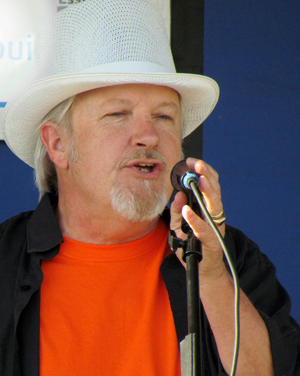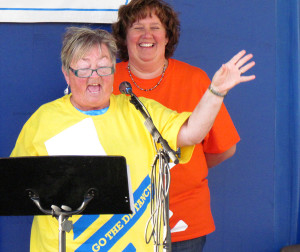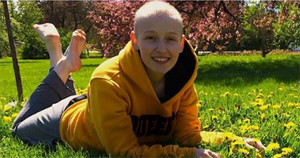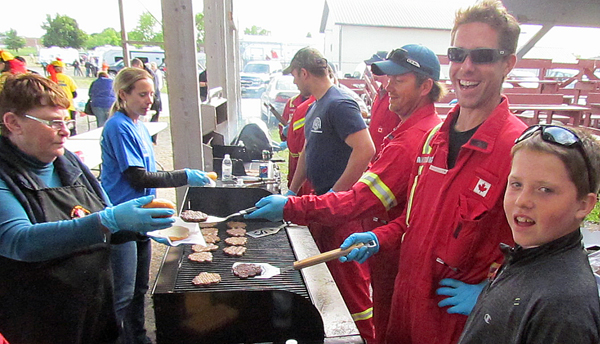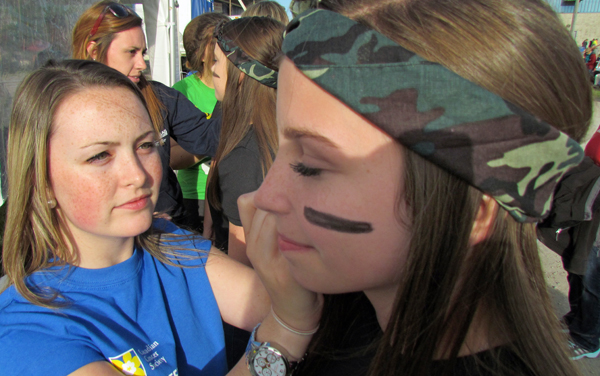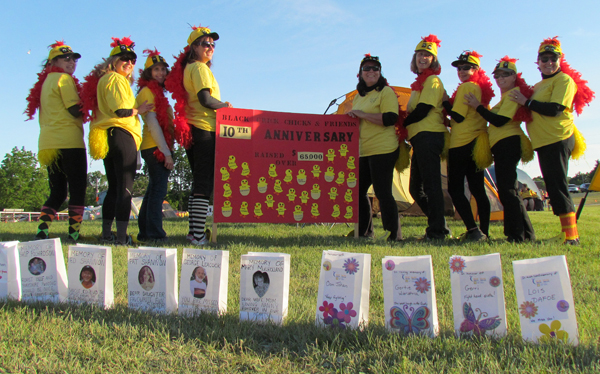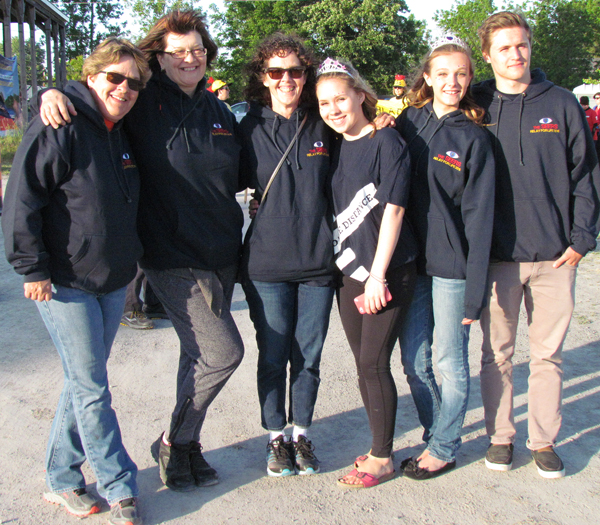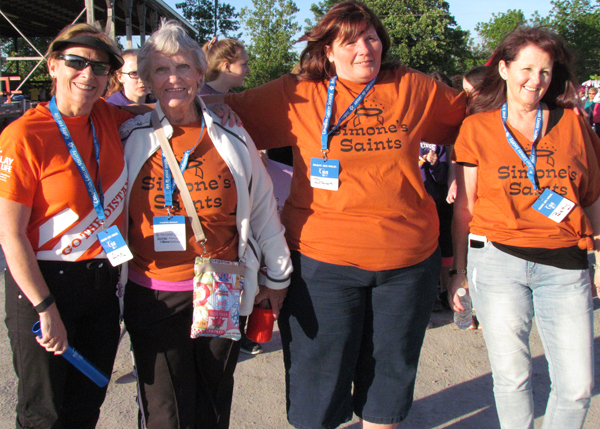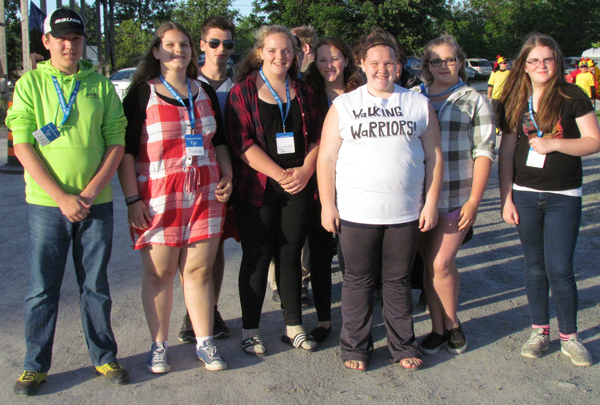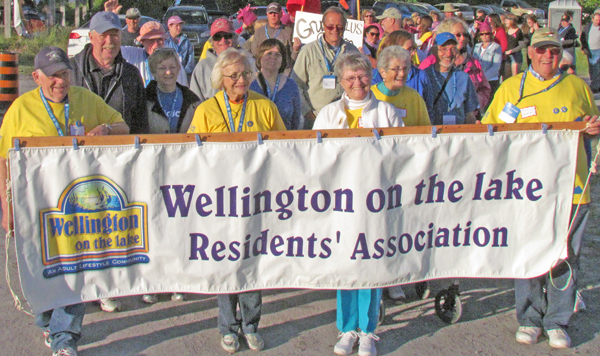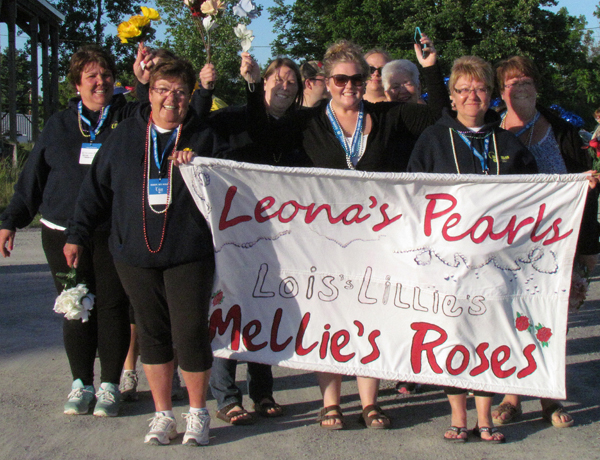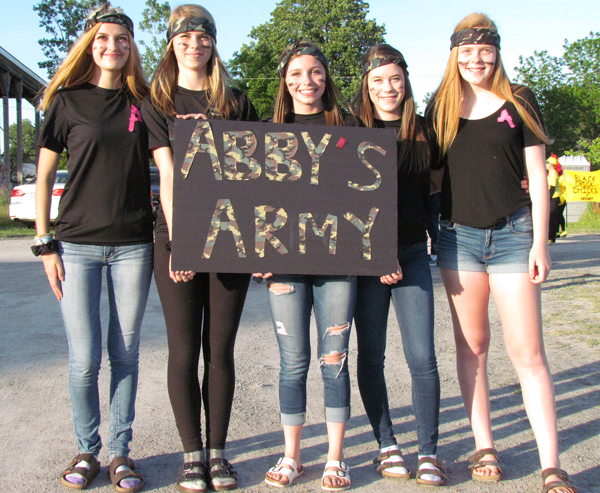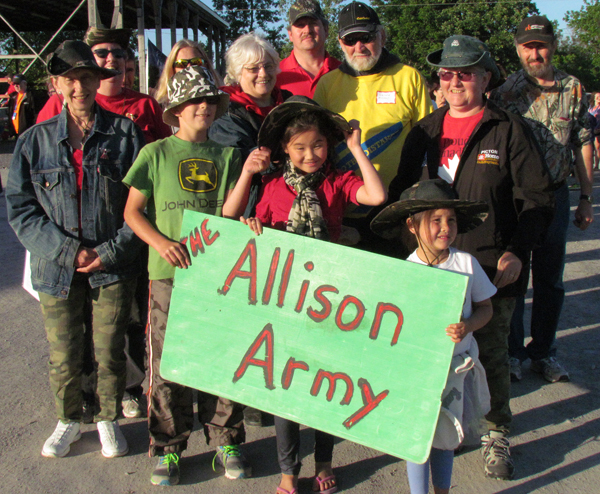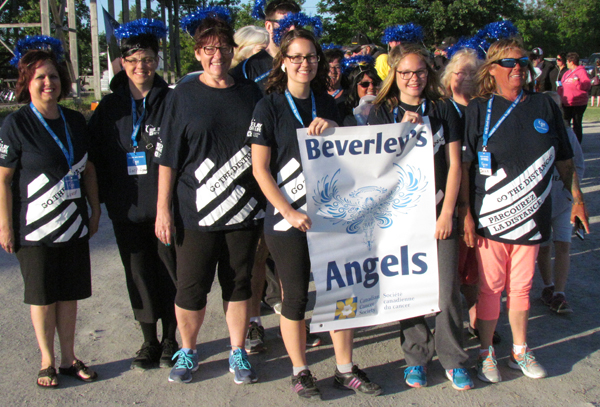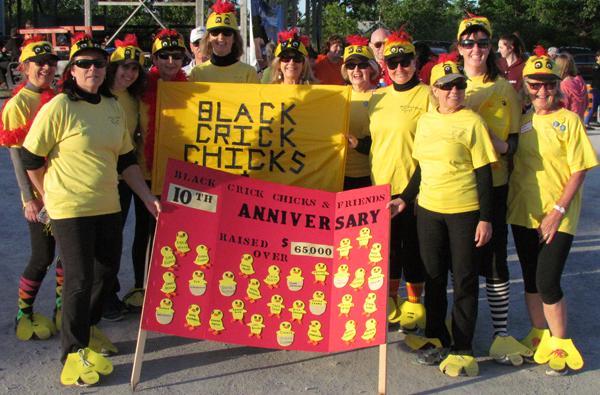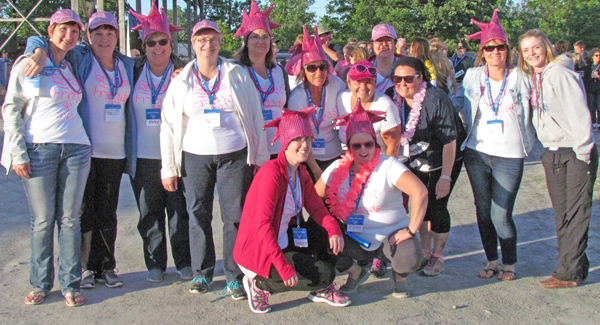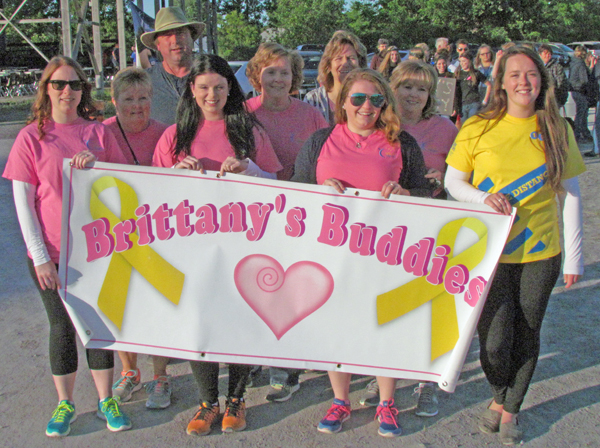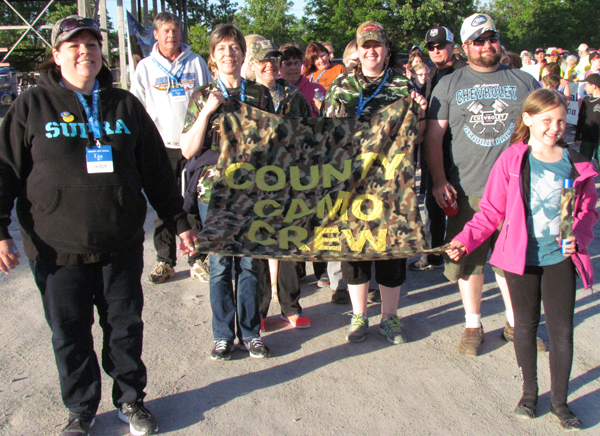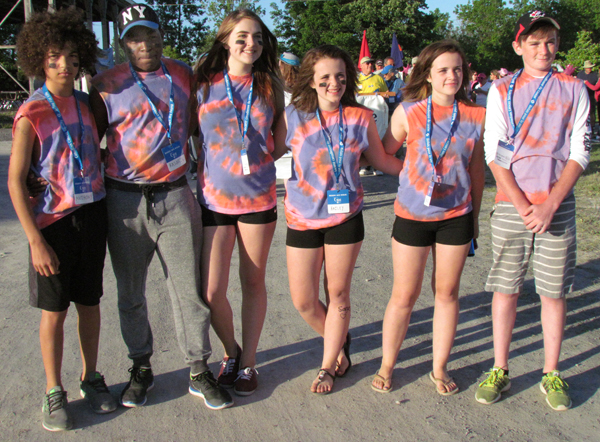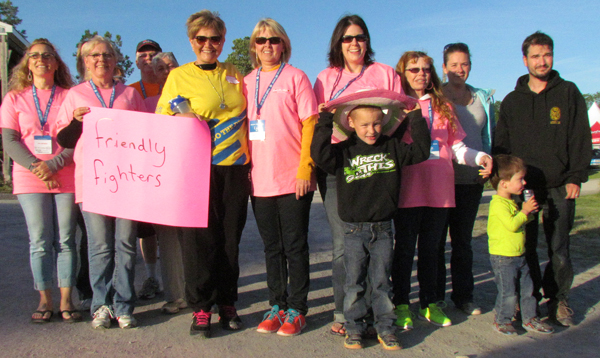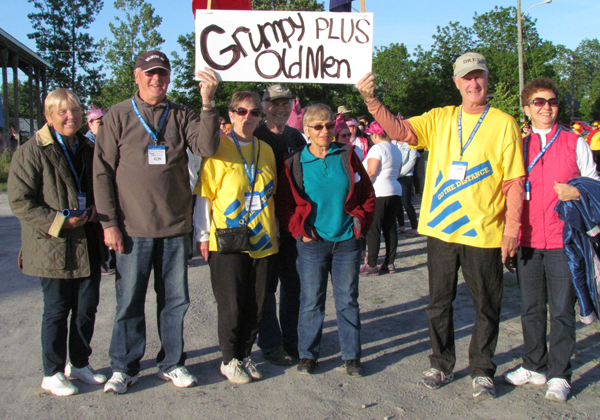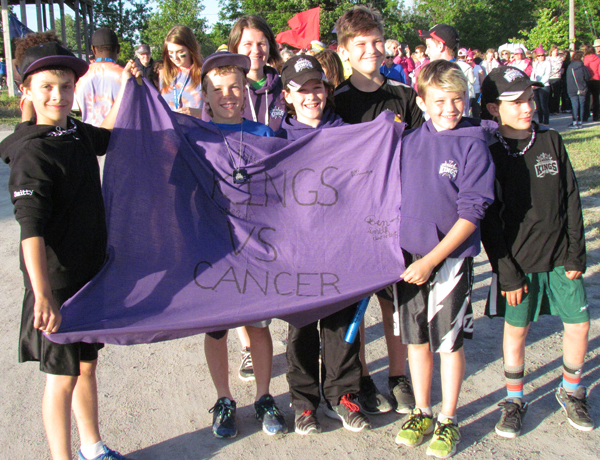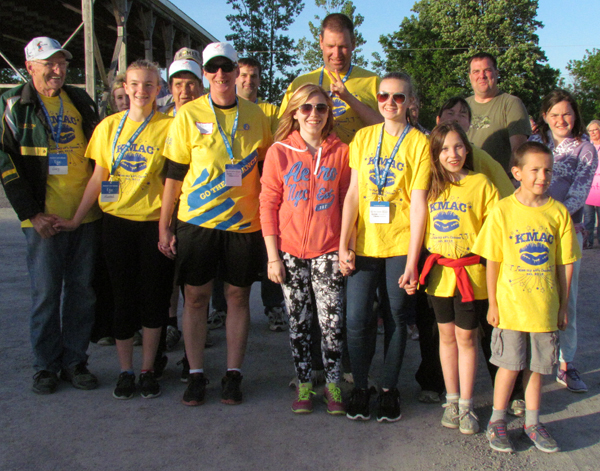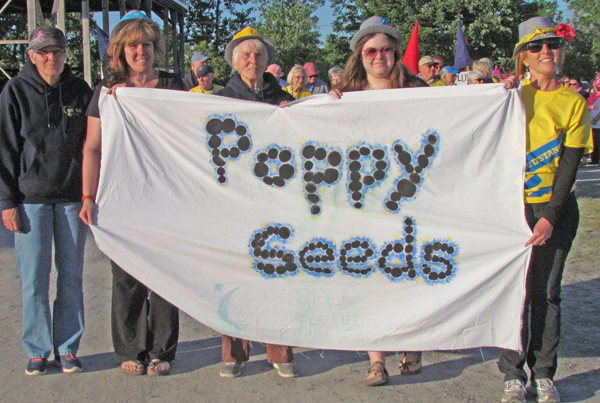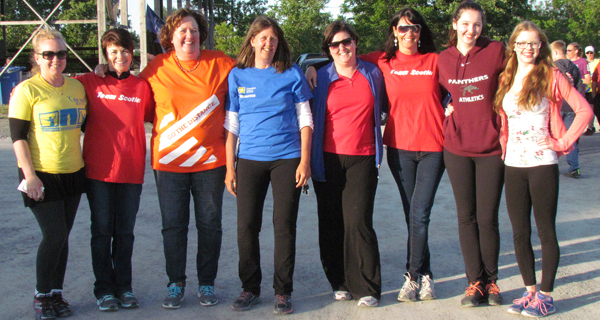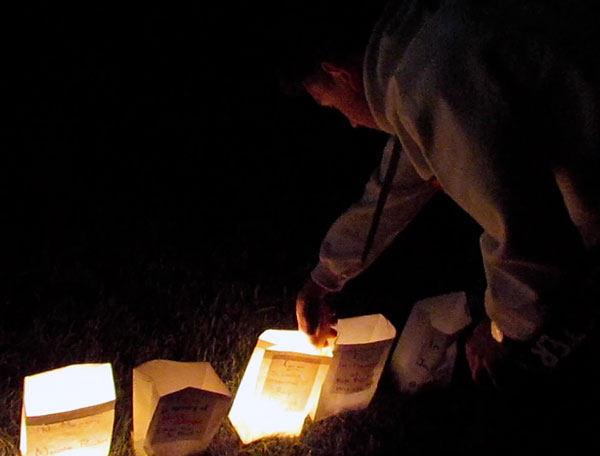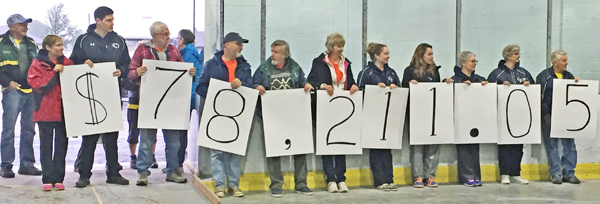Community members ‘Go the Distance’ to fight cancer in Relay for Life
Administrator | Jun 10, 2016 | Comments 0
Though numbers were somewhat lighter than in previous years, the determination to celebrate survivors and continue the fight to beat cancer was strong.
Emcee Rick Zimmerman noted the County’s seventh annual Relay for Life is an inspirational, overnight fundraising event designed to bring the community together to celebrate life, and fight cancer.
As of last year, this community had raised more than one million dollars. This year’s tally, announced when the sun came up Saturday morning, was $78,211.05
“Coming from the County we would all agree that the worst thing about living in a small town is that everyone knows your business,” said Val MacDonald, cancer survivor and opening ceremonies guest speaker. “But the best thing about living in a small town is that everyone knows your business – and cares! What a great thing when you’re going through something like a life-threatening disease.”
“Cancer is an evil blight on our society and nights like this are to do our best to obliterate it,” said MacDonald, speaking about her diagnosis in 2001 with Multiple Myeloma, when she was 43. She had never heard of that form of cancer of the plasma cells which accumulate in the bone marrow and interfere with production of normal blood cells. It is not cureable, but is treatable.
In the middle of tax season the former accountant noted she was started on a chemotherapy regimen and was hooked to an IV for several hours daily.
“When my hair fell out, like so many of you, I got used to wearing my wig. When it grew back, it was curly and I though how great it would be if that curl stayed. I would save money on perms… but no such luck. It’s straight again.”
More chemotherapy followed – twice a week, around-the-clock every day at Princess Margaret Hospital. She needed a stem cell transplant, which she noted would re-boot her immune system in much the same way a computer is rebooted – but there was no donor, so her own cells were harvested.
“The process involved having my husband inject me at home, with neupogen, which helped my body create stem cells. I’ll never forget the two of us collapsing in fits of laughter, for some reason, every time he came at me with one of those syringes.”
In February 2002 she received her stem cells and after 24 days, she was bald, and weak, but ready to go home. Being successful, a second transplant was set for that fall.
In 2009 her protein count was up again and she was given a form of Thalidomide, which was a drug given to expectant mothers in the 50s to prevent morning sickness, but caused birth deformities to arms and legs.
“It has been very effective in my treatment,” said MacDonald, who takes a pill every night for 21 days per month. “The other part of the regimen is Dexamethasone, a steroid I take every Sunday. The combination of these two drugs has me in remission, or as close as a Multiple Myeloma patient can be to remission.”
MacDonald thanked the community for continuing the fight.
“Events like Relay for Life provide funding for research by the National Cancer Institute. The drug companies also do a great amount of research as we all know, but their results and recommendations are influenced by the dollars and cents, the bottom line. The Cancer Institute makes recommendations based on patient results.
“Part of the secret to coping and enjoying life in spite of your condition is to try your best to have a positive outlook,” she said. “My other advice is do not look at the internet!… To my fellow cancer survivors, hang in there. Every day give thanks for all the good things in your life – including all these great people in our community who devote the time and energy to participate in Relay for Life.”
Though unable to attend the event as she has done for many years, the County’s Kait Shannon shared the story of her battle in the evening’s program.
Shannon, a 21-year-old finance student at Carleton University, had a lump removed from her back, received radiation and later, an “all clear” but less than a year later, was told it had spread to her lungs and lymph nodes.
Months of chemo concoctions were hopeful, but she said being on opioids for months she felt she had lost her spark and her renown upbeat sunny personality was down.
“After a nasty withdrawal I made up my mind never to go back,” she wrote. “I spoke to my doctor about medical cannabis. It has been a lifeline ever since and helps to manage all my symptoms. It has been most effective as a tincture to be ingested or mixed with coconut oil as a skin cream. I am half way through my chemo treatments and yet have no nausea, eat well, and have maintained my weight as well as steady blood results.”
She is happy to note her most recent scan shows a 50 per cent reduction.
“It has been a difficult and significant adjustment, but I am overwhelmed with the kind hearts of Prince Edward County. We continue to receive, appreciate and share beautiful prayers, light and positive healing… Thank you for all you do for cancer research. We continue to learn more about both preventative and reactive measures… Never quit the fight.”
Prince Edward County Mayor Robert Quaiff lost his mother and his father to cancer, and seven of their siblings.
He told the crowd he worked in the insurance business and “one of the reasons I retired is that I got tired of delivering death claim cheques for individuals younger than myself.
“And the hardest one,” said Quaiff, feeling the emotion again, “was the death of my 38-year-old niece who left behind three daughters – 12, 10 and eight.
“So people ask me every day what’s the part of your job you enjoy most and I say it’s this,” he said, pointing to the crowd of survivors and supporters. “It’s you guys who support our community, that volunteer, that dedicate your time and your energies. It just makes us one community to be proud of and that’s why I’m so proud to be the mayor of Prince Edward County.”
Teams making the overnight rounds:
Filed Under: Featured Articles
About the Author:




